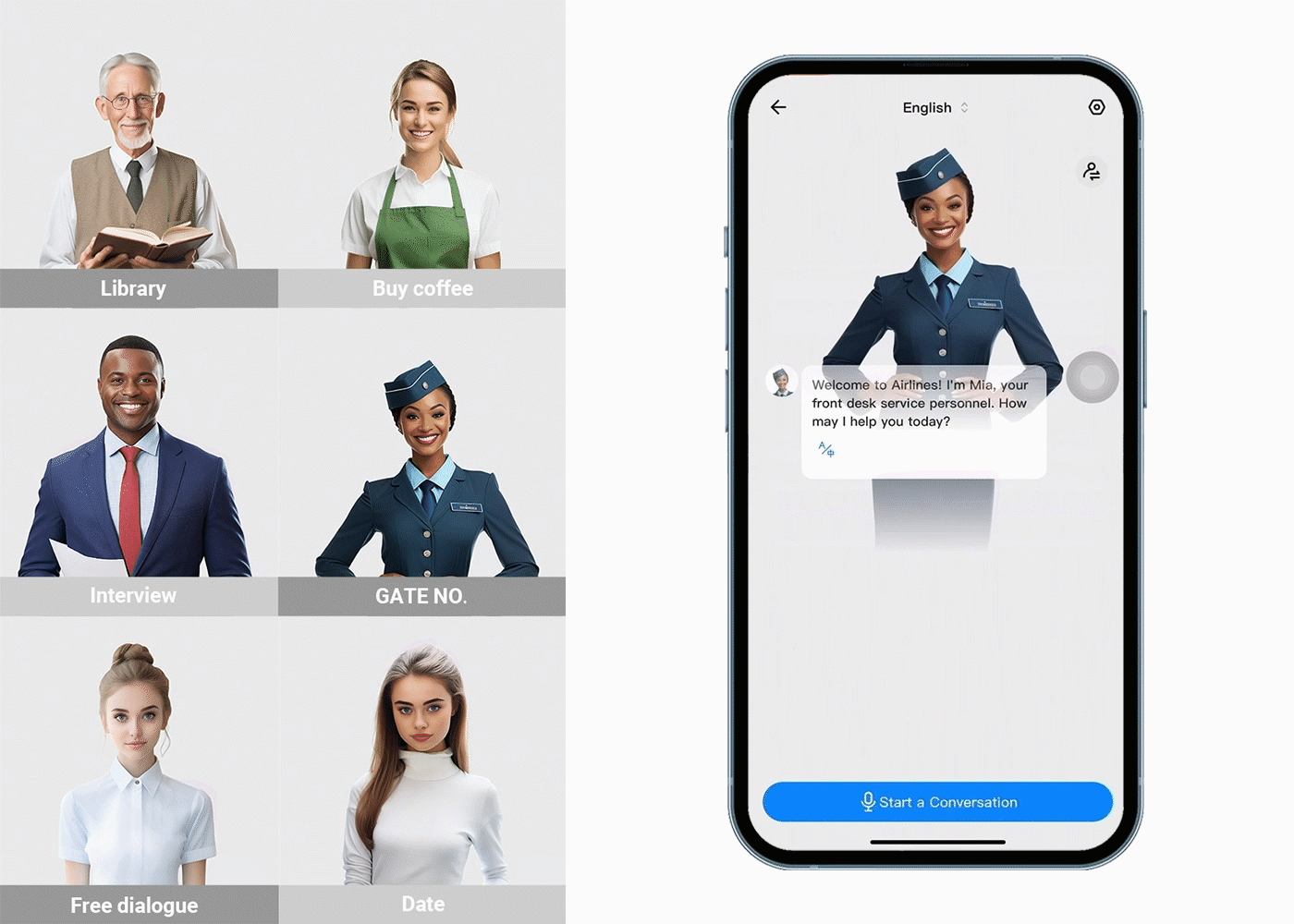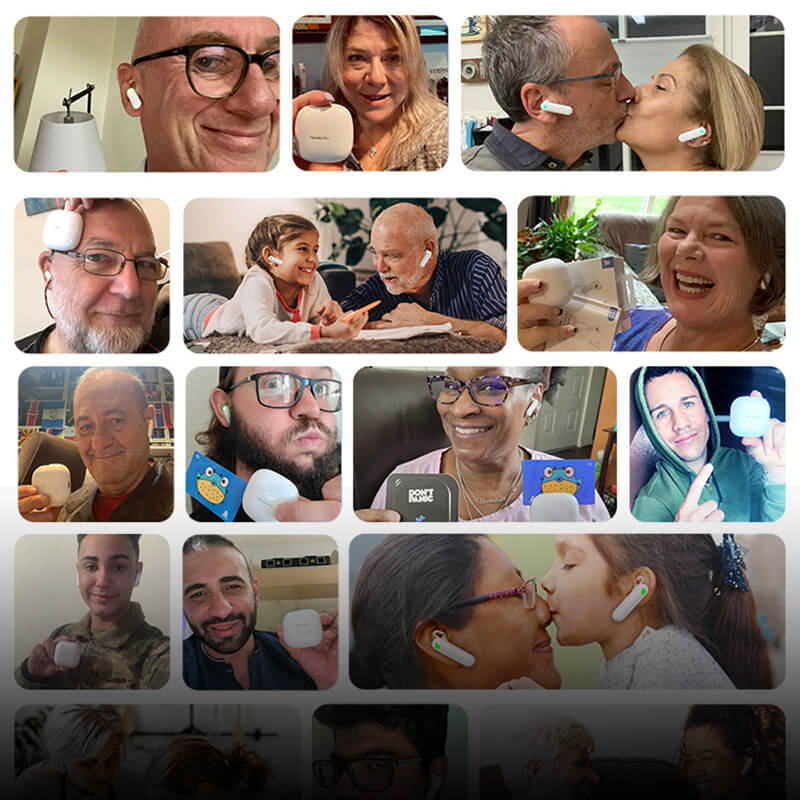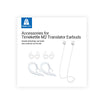The African continent is a rich tapestry of cultures and languages, with an estimated 2000 languages being spoken across the region. But which ones are the most popular? This article explores some of the most widely-spoken African languages, discovering why they have gained such broad use across the continent. From colonial influence to population size, we'll look at all the factors that have helped these languages thrive and become integral to Africa's diverse history. We'll also look at Timekettle's Translation Earbuds, which allow you to communicate with international clients in Africa.
Overview of African Languages:
Africa is a continent with immense linguistic diversity. More than 2,000 languages are spoken in Africa, and many of them have contributed to the formation of various African cultures. This article will overview some of the most essential and common African languages. Swahili, commonly called Kiswahili, is a Bantu language that originated on the East Coast of Africa. It is one of the most widely spoken African languages in several countries, such as Kenya, Tanzania, and Uganda. Hausa is also a major language in West Africa, with speakers mainly found in Nigeria and Niger. Zulu is another popular language spoken primarily to ethnic Zulus in southern Africa, particularly South Africa and Swaziland.
Only List Of languages:
Most languages spoken in Africa can be grouped into four language families: Afroasiatic, Nilo-Saharan, Niger-Congo, and Khoe. The most widely spoken are Afroasiatic languages, such as
- Swahili
- Hausa
- Zulu
- Amharic
- Igbo
- Xhosa
- Yoruba
- Oromo
- Wolof
- Afrikaans
- Khoisan
- Shona
- Lingala
- Bantu
- Setswana
- Somali
- Sesotho
- Swati
- Kinyarwanda
- Akan
- Mande
- Venda
- Kirundi
Millions speak these languages of people across the continent, and form an essential part of African culture. For example, Swahili is a lingua franca in East Africa, while Hausa has been a trade language for centuries. Besides these major languages, there are also numerous other regional languages spoken.
Major Language Families Present in Africa:
Africa is a rich tapestry of languages, reflecting the diversity and history of its people. Six primary language families are present in Africa – Afro-Asiatic, Nilo-Saharan, Khoisan, Niger-Congo, Austronesian, and Indo-European. Each family has a distinct history and geographic distribution on the continent.
6 Major Language Families:
- The Afro-Asiatic language family is found in the Middle East, North Africa, and Sub-Saharan Africa. It includes many of the world's most widely spoken languages, including Arabic, Amharic, Hebrew, Somali, and Hausa.
- Nilo-Saharan Language Family covers much of Central and Eastern Africa, from Lake Chad to Ethiopia, Sudan, and South Sudan. Commonly spoken languages include Dinka, Maasai, Songhai, Kanuri, and Fur.
- Khoisan Languages are spoken mainly by small ethnic groups in Namibia, Botswana, and South Africa. These languages are characterized by their click sounds, distinguishing them from other African language families. Major languages include Nama, Hadza, and Sandawe.
- Niger-Congo is the most prominent family in Africa, covering much of Central, East, and West Africa and parts of Southern Africa. It includes several major branches, such as Bantu languages spoken by some 250 million people across Africa. Commonly spoken languages in this family include Swahili, Igbo, Yoruba, Zulu, and Xhosa.
- Austronesian Languages are found mainly on the eastern coast of Africa near Madagascar, where they have been present for centuries due to their origins in Southeast Asia. Some commonly spoken languages include Malagasy and Comorian (spoken on the island of Mayotte).
- Indo-European Languages are found mainly in northern Africa and are believed to have originated in Southwest Asia. These languages include Fulani, ber, and Coptic (the last remaining language of ancient Egypt).
These major language families offer a unique insight into Africa's history and culture, allowing us to understand the continent's diversity and people better. By learning more about these language families, we can better understand what makes Africa such an incredible place full of life and possibility.
Frequently Asked Questions:
What is the fastest-growing language in Africa?
The fastest-growing language in Africa is Swahili, also known as Kiswahili. It is an official language in seven countries — Kenya, Tanzania, Uganda, Rwanda, Burundi, Mozambique, and Comoros - and is spoken by over 150 million people across East and Central Africa.
How many religions are in Africa?
Africa is home to an incredible diversity of religious beliefs. Christianity and Islam are the two largest religions in Africa, with approximately 40% of Africans identifying as Christian and 39% identifying as Muslim, according to estimates from the Gallup World Poll. Other prevalent religions on the continent include traditional African beliefs such as ancestor veneration, Hinduism, and Buddhism.
Which country speaks Arabic the largest?
Egypt is currently the country with the most native speakers of Arabic in Africa, with just over 96 million people speaking it as a first language, according to Ethnologue estimates. Algeria also has a large population of native speakers, at 37 million, followed by Sudan (30 million) and Morocco (25 million).
What is the official language of Africa?
The African Union has declared no single "official" language of the continent. Instead, it recognizes the languages given official status in national constitutions as "African languages." These include Afrikaans, Arabic, English, French, Kiswahili (Swahili), Portuguese, and other indigenous languages.
Final Note:
Finally, Africa is the second largest continent in the world and home to many languages. Although Arabic, English, and French are the most spoken languages in Africa, various other languages can be heard in different parts of the continent. Using Timekettle Translation Earbuds, you can save yourself from learning a new language as it allows you to easily communicate with someone who speaks a different language without hassle. Whether you are a student, businessman, or an individual traveler, Timekettle Translation Earbuds are your perfect companion for exploring this diverse continent! So get ready for your next adventure with Timekettle Translation Earbuds!
 Talk to Customer Service 1(833) 491-1328
Talk to Customer Service 1(833) 491-1328










































Leave a comment
All comments are moderated before being published.
This site is protected by hCaptcha and the hCaptcha Privacy Policy and Terms of Service apply.